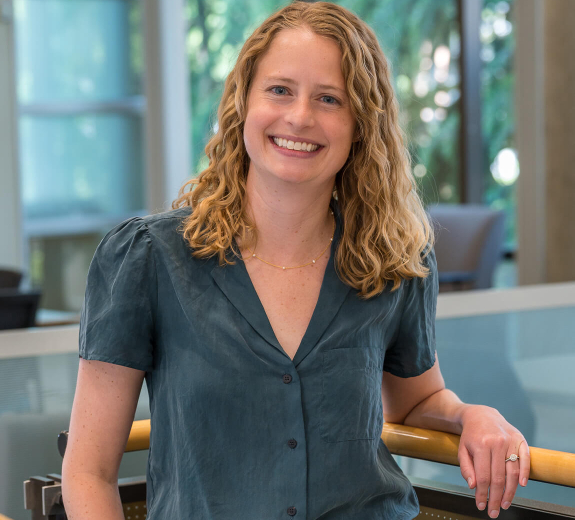What brought you to BRI?
I was drawn to BRI because they genuinely care about the patient and prioritize scientific questions that may ultimately improve patient care. As a computational biologist, I love that I’m able to collaborate closely with amazing study coordinators and physicians to collect samples from patients at Virginia Mason Franciscan Health, while also being able to collaborate with brilliant immunologists just across the hall to test hypotheses and study cause and effect in the lab.
What’s the main focus of your lab?
Broadly, my lab studies how the gut microbiome impacts your immune system and how that impact may affect an individual’s response to cancer treatment. This area of research really took off when scientists were studying a cancer medicine that worked for some — but not all — recipients. In lab models, they changed the gut bacteria in the group that initially didn’t respond to the medicine — and then the medicine started to work.
In my lab, we use a reverse translation approach. This means we start with samples from people being treated for a disease, take them back to the lab, and ask questions around why a medicine worked in one person but not another. At BRI, I can work closely with amazing immunologists to test certain hypotheses experimentally. That’s not possible at every research institute, so I’m really looking forward to that.
What are some interesting research projects your team is working on?
One of my lab’s first projects is studying the microbiomes of people being treated for melanoma.
We’re examining how their gut bacteria change over the course of treatment and if those bacteria might help explain why some people experience adverse side effects.
One of my hopes for the future is to conduct more research in the context of autoimmune disease. I hope to find good answers to questions like:
- How do gut bacteria influence the development of certain diseases?
- How might gut bacteria explain why certain treatments work differently in people with the same autoimmune disease?
What do you like to do for fun?
I recently took up pottery and I’ve really been enjoying building things!




